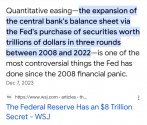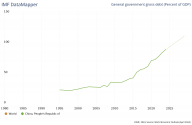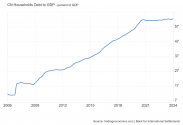PBoC wading into equity is nothing new. They have done it before in 2015 sell off, about similar size, though the delivery mechanism was only through csf. Pan Gongsheng was already there in those times.
Nowhere as much as the "Quantitative Easing" from 2008 to 2022:

If people think China can and should pump $8T into its market to make it "better" then I can tell you it is far better to put those trillions as government bank loans to chips, EV, aircraft factories and the like -- as China is doing now.
Far more direct and far less likely for the wealthy class to cash out and smuggle out to convert into real estate in Vancouver, San Fran or Sydney.
Don't use the US stock market as an example for China or any other country outside the West.


